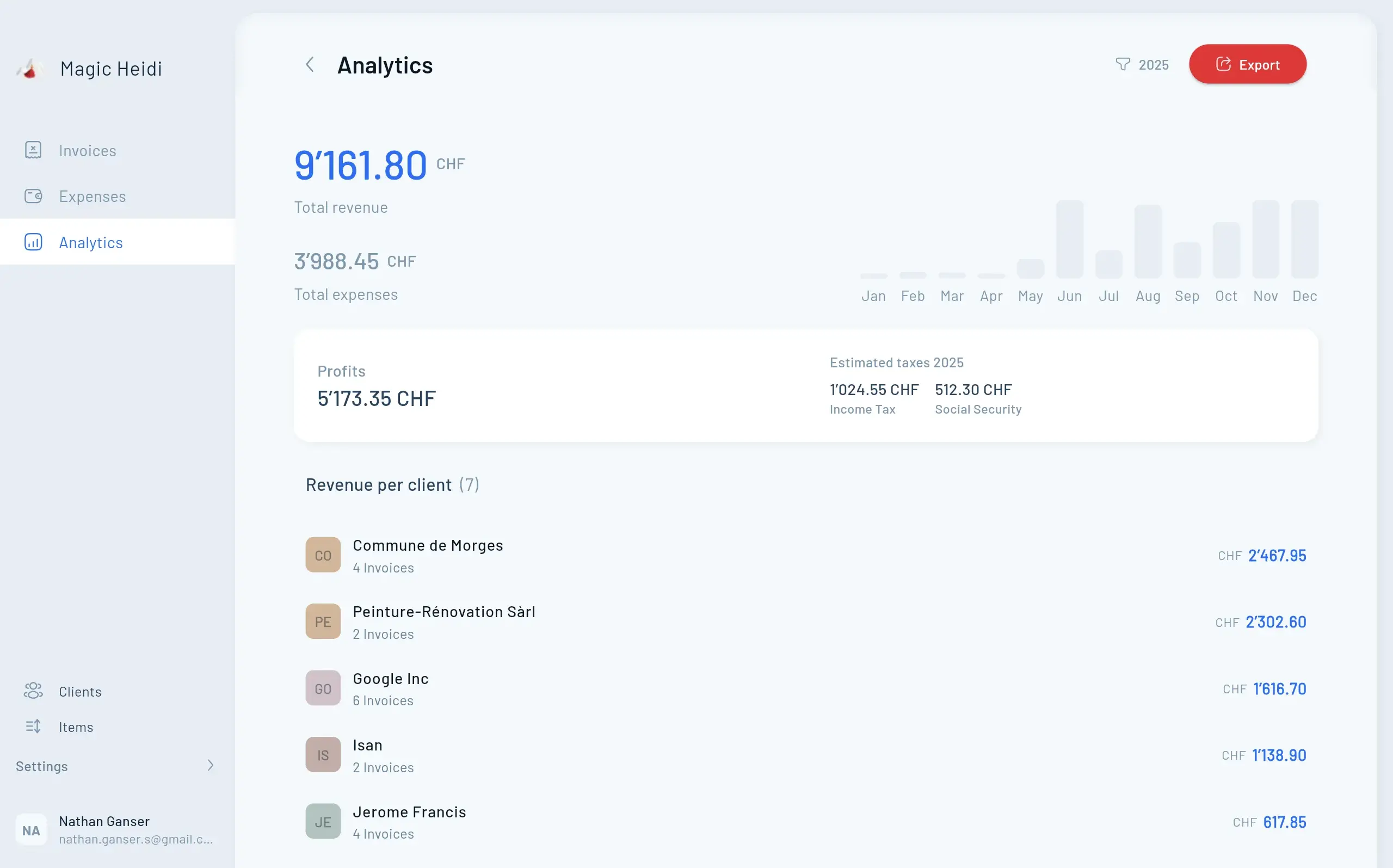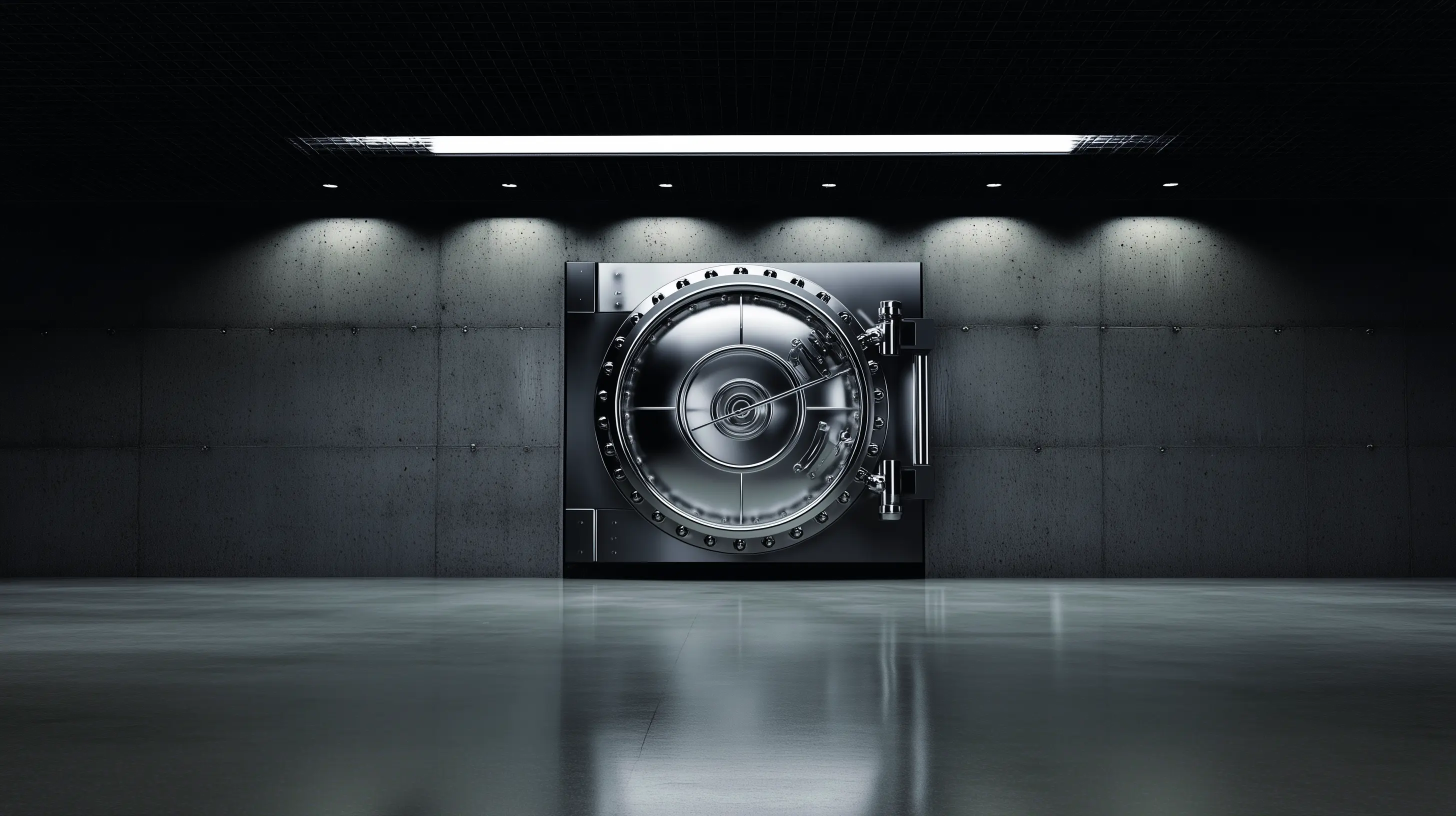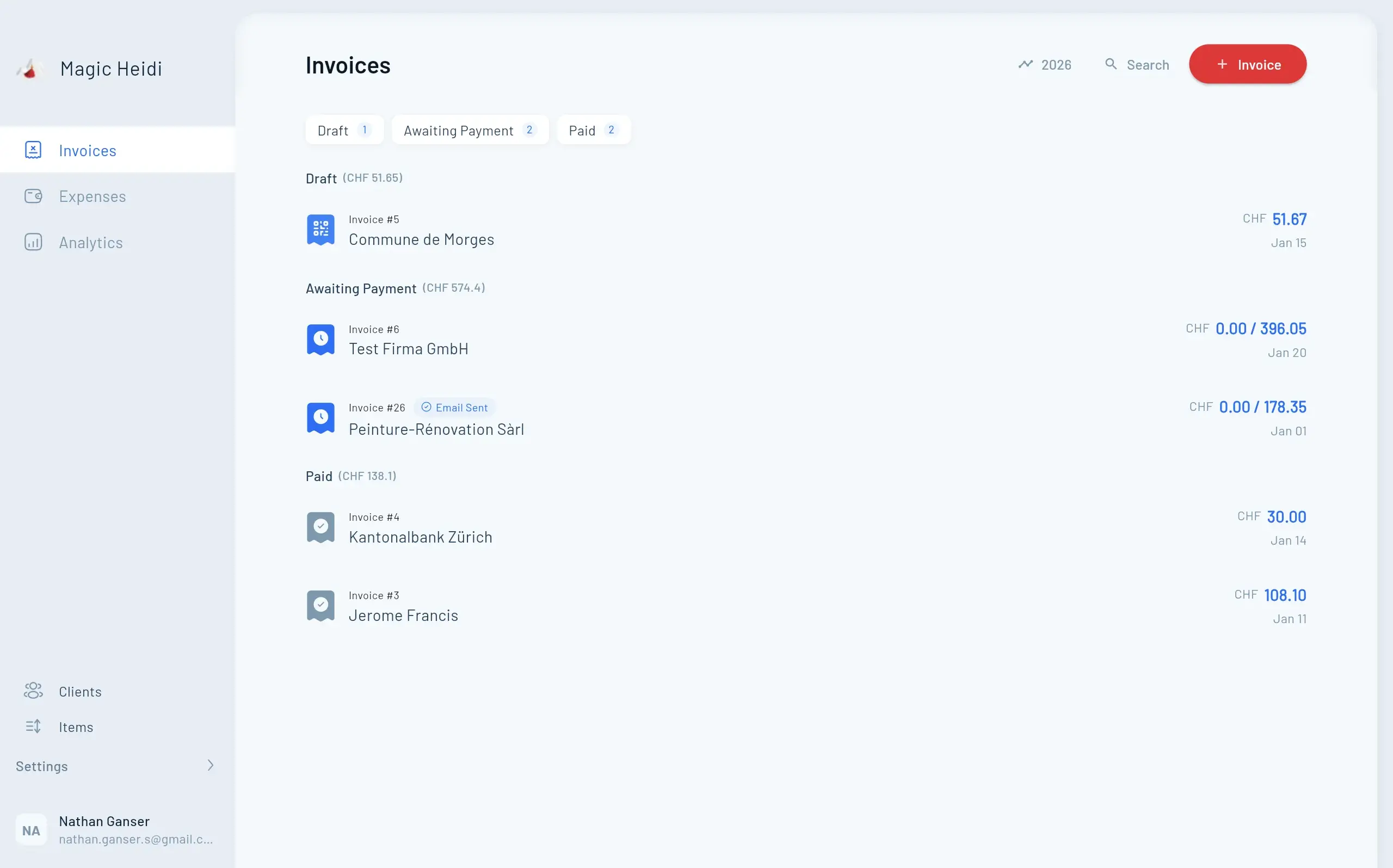Progressive Rate Structure
As a self-employed person, you pay the full AVS contribution yourself.
- Income up to CHF 60,500: Sliding scale from 5.371% to 8%
- Income CHF 60,500 and above: 10%
- Includes AVS/AHV (8.7%), IV/AI (1.4%), EO/APG (0.5%)
- Minimum contribution: CHF 530 annually (even with low income)









